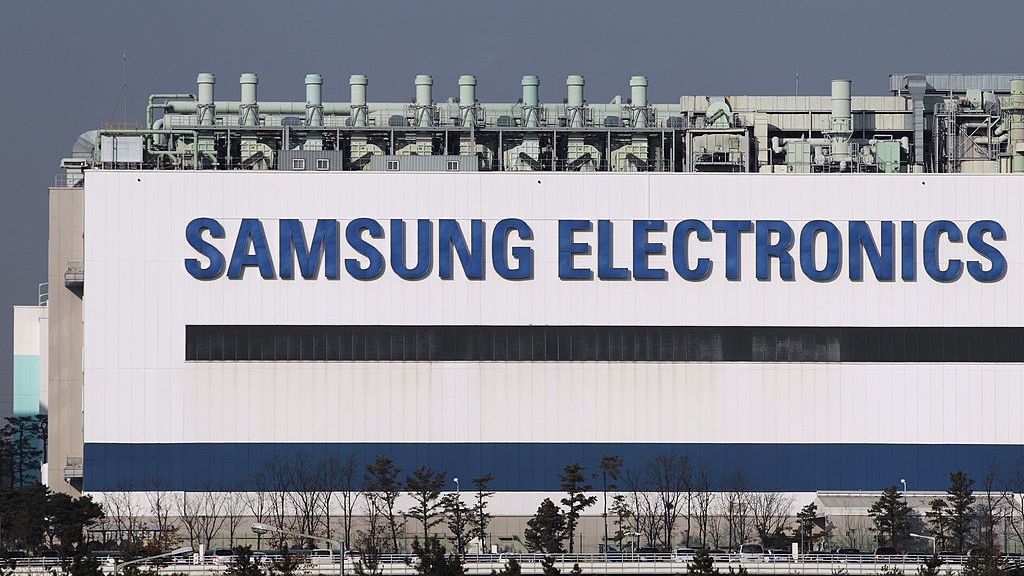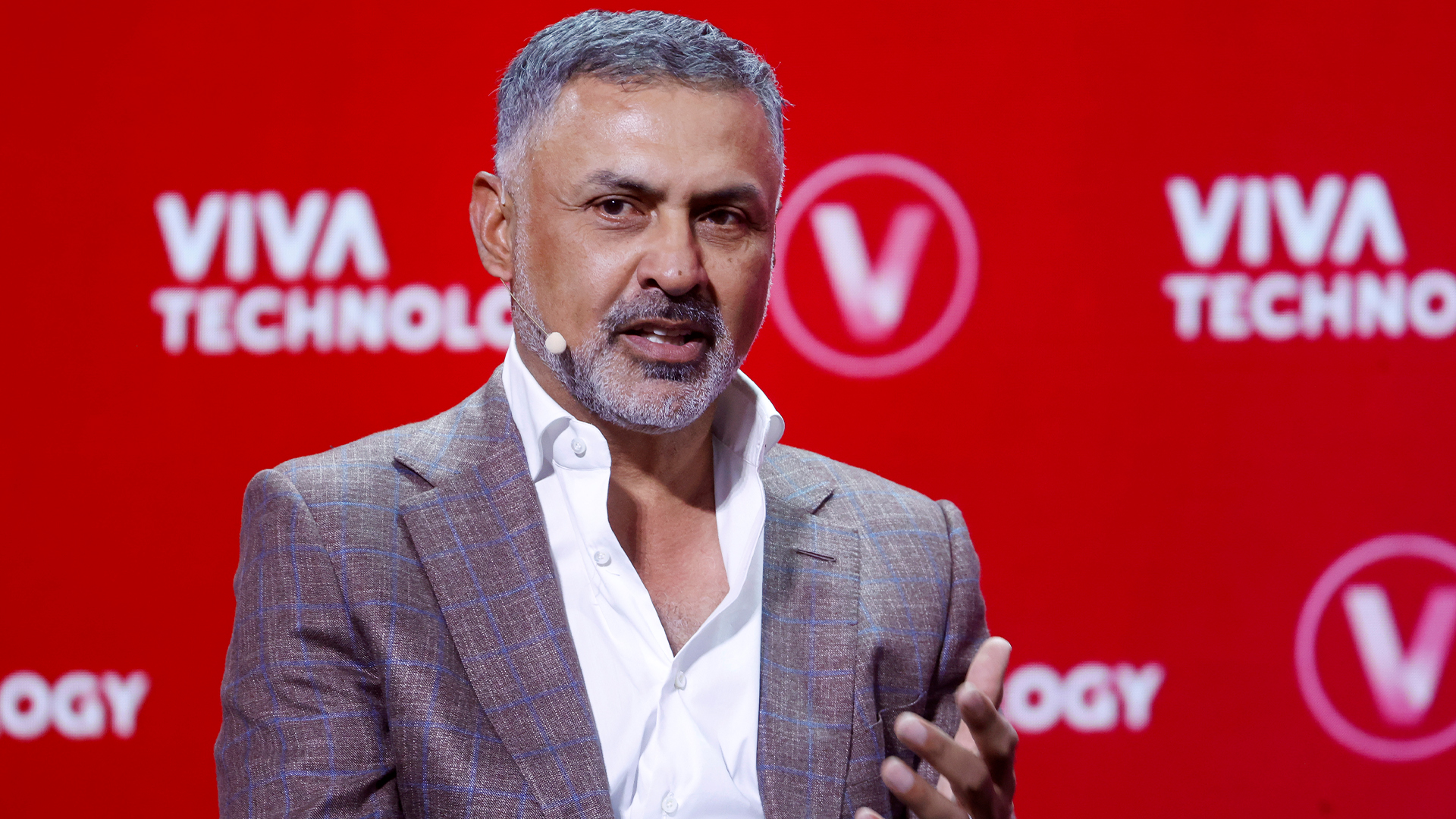Samsung proposes 11 Texas semiconductor plants worth $191 billion
The school boards of Austin and Taylor are to consider new facilities that could bring 10,000 new jobs to the area


Sign up today and you will receive a free copy of our Future Focus 2025 report - the leading guidance on AI, cybersecurity and other IT challenges as per 700+ senior executives
You are now subscribed
Your newsletter sign-up was successful
Samsung has proposed the building of 11 new chip making factories in the Austin and Taylor areas of Texas, representing $191.2 billion of investment.
The proposals, published on the Texas comptroller’s website on Wednesday, mark a significant move by the South Korean manufacturing giant to corner the semiconductor market in the US, and would represent a sizeable investment in Texas' $2 trillion economy.
RELATED RESOURCE

The field guide to application modernisation
Moving forward with your enterprise application portfolio
If approved, the facilities are expected to stimulate the local economy to the tune of 10,000 jobs. Approximately 1,800 of these jobs would be created in Austin, with the remaining 8,200 in Taylor.
It follows another major move by Samsung in Texas this year, with a $17 billion semiconductor facility in Taylor hoping to break ground in 2022. Just last month, Samsung identified Yates Construction, a Mississippi-based contractor, as the builder for this facility, which the company hopes will be operational in 2024.
Speaking to the Austin American Statesman, the executive director of the Austin Regional Manufacturers Association Ed Latson emphasised the scale of the proposal.
"Samsung's commitment and investment in this area are in a class of their own."
"We're talking about the largest foreign investment in the United States right here in our region. It's going [to] have a dramatic impact on the economic development and growth of Central Texas."
Sign up today and you will receive a free copy of our Future Focus 2025 report - the leading guidance on AI, cybersecurity and other IT challenges as per 700+ senior executives
The documents published yesterday point to long-term expansion plans in Texas, with estimates that construction on the sites could begin between 2027-29. The proposals seek a Chapter 313 Agreement with the school boards of each area, an agreement named after a chapter in Texas tax law that states a taxpayer may agree to build property and create jobs in exchange for “a 10-year limitation on the taxable property value for school district maintenance and operations tax (M&O) purposes”.
In a statement to IT Pro, Samsung made clear that it is exploring options in the area without committal.
"We currently do not have specific plans to build at this time, however, the Chapter 313 applications to the State of Texas are part of a long-term planning process of Samsung to evaluate the viability of potentially building additional fabrication plants in the United States," said a spokesperson.
Texas is already established as a chip manufacturer, with semiconductors being the state’s 6th largest export in 2019, for a total of over $13.8 billion. Samsung is also well-established in the state, already operating a semiconductor facility that employs thousands of workers.
The expansion of localised semiconductor manufacturing is currently seen as a key goal in both the US and Europe. The EU continues to move ahead with its European Chips Act to accelerate the development of sites such as a planned €33 billion Intel facility in Germany.
Meanwhile, the US Congress is expected to pass a version of its own CHIPS Act soon, which seeks to provide $52 billion in grants for chip manufacturers in order to stimulate domestic production. Manufacturers have lobbied heavily for the funding, with Intel pausing construction on a planned facility in Ohio until the act is passed.
This article was updated to include a statement from Samsung.

Rory Bathgate is Features and Multimedia Editor at ITPro, overseeing all in-depth content and case studies. He can also be found co-hosting the ITPro Podcast with Jane McCallion, swapping a keyboard for a microphone to discuss the latest learnings with thought leaders from across the tech sector.
In his free time, Rory enjoys photography, video editing, and good science fiction. After graduating from the University of Kent with a BA in English and American Literature, Rory undertook an MA in Eighteenth-Century Studies at King’s College London. He joined ITPro in 2022 as a graduate, following four years in student journalism. You can contact Rory at rory.bathgate@futurenet.com or on LinkedIn.
-
 Palo Alto Networks CEO hails ‘the end of identity silos’ as firm closes CyberArk acquisition
Palo Alto Networks CEO hails ‘the end of identity silos’ as firm closes CyberArk acquisitionNews Palo Alto Networks' CEO Nikesh Arora says the $25bn CyberArk acquisition heralds "the end of identity silos" for customers, enabling them to supercharge privileged access management.
-
 Google says hacker groups are using Gemini to augment attacks
Google says hacker groups are using Gemini to augment attacksNews Google Threat Intelligence Group has shut down repeated attempts to misuse the Gemini model family
-
 IDC: The business value of IBM Maximo
IDC: The business value of IBM MaximoWhitepaper Integral to the transformation of asset management
-
 UK firms are pouring money into AI, but they won’t see a return on investment unless they address these key issues
UK firms are pouring money into AI, but they won’t see a return on investment unless they address these key issuesNews An SAP report projects increased AI investment, but cautions that too many organizations are taking a fragmented approach
-
 Intel makes high-level hires while factory workers are warned of layoffs
Intel makes high-level hires while factory workers are warned of layoffsNews The company is appointing four senior executives as part of efforts to refocus on engineering and customer relationships
-
 UiPath names Simon Pettit as new AVP for UK and Ireland
UiPath names Simon Pettit as new AVP for UK and IrelandNews The seasoned leader will spearhead region-specific transformation projects as UiPath looks to drive operational growth and customer engagement
-
 Samsung ramps up AI capabilities with Oxford Semantic Technologies acquisition
Samsung ramps up AI capabilities with Oxford Semantic Technologies acquisitionNews Oxford Semantic Technologies' knowledge graph tech will be incorporated into Samsung products across the board
-
 Samsung UK recruits its first chief customer officer in bid to boost partner engagement
Samsung UK recruits its first chief customer officer in bid to boost partner engagementNews Deborah Honig will lead Samsung UK’s customer experience activity across its portfolio of business offerings in the region
-
 How to empower employees to accelerate emissions reduction
How to empower employees to accelerate emissions reductionin depth With ICT accounting for as much as 3% of global carbon emissions, the same as aviation, the industry needs to increase emissions reduction
-
 Worldwide IT spending to grow 4.3% in 2023, with no significant AI impact
Worldwide IT spending to grow 4.3% in 2023, with no significant AI impactNews Spending patterns have changed as companies take an inward focus